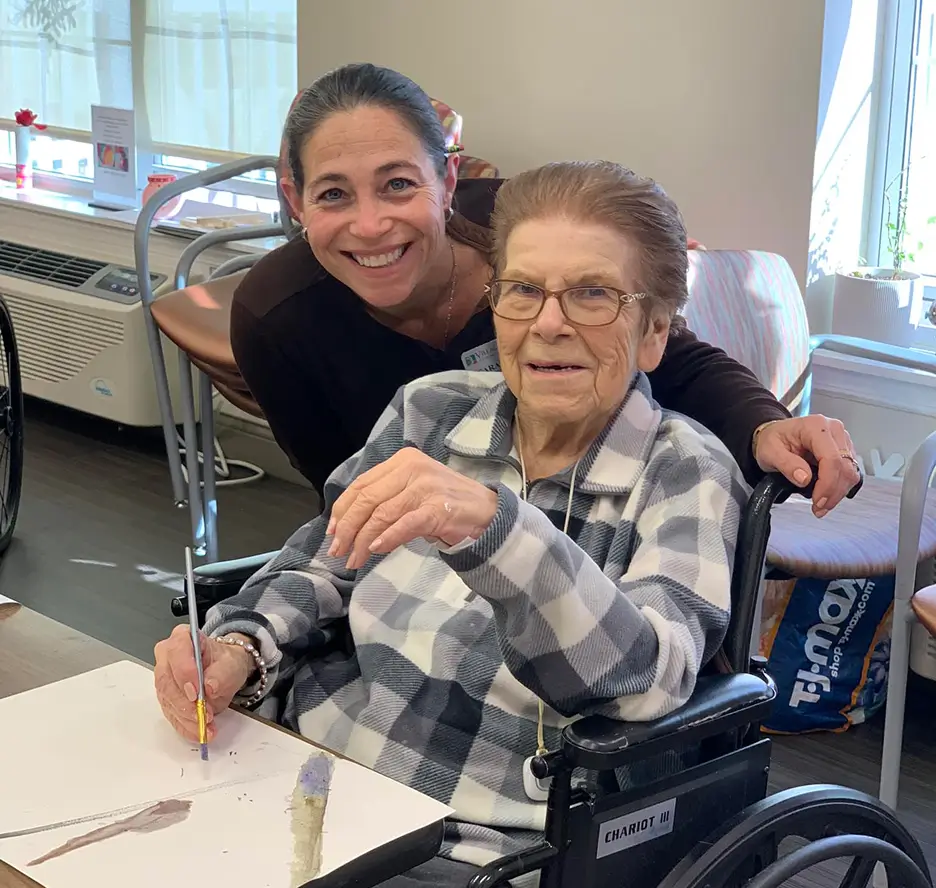Watching a family member or loved one experience dementia is a real challenge. Watching a family member or dementia patient refusing to go into care is even more challenging.
After all, seeing your loved one refuse the very care that can prolong their life, make them happier, and allow them to live their life to the fullest can be tough.
Before challenges turn to resentments and frustrations, we have a few tips that can help you and your loved ones deal with people with dementia who aren’t quite ready to accept they need some extra tender loving care.
Village Green here: we’ve been helping families and caregivers navigate the challenging conversations and task of helping their loved ones see the beauty and value in receiving continued specialized care.
If you’re wondering how to help your loved one see the value of memory care and other assisted living support, you’ve come to the right place.
In this article, we’ll discuss what to do to help you or your loved one with dementia who refuses to explore the possibility of continuing care. We’ll cover topics such as:
- The reasons why a person might refuse extra care
- Steps to take to help a person with dementia navigate the journey ahead
- Professional support and resources for families and caregivers with loved ones with dementia
- Tips and educational resources that can help dementia patients understand the role of extra support and care for their health condition
5 Key insights about a dementia patient refusing to go into or receive care
| 1. The number of people with memory loss-related conditions is in the millions. For example, people aged 65+ with Alzheimer’s dementia in the U.S. may reach up to 7.2 million, according to a 2023 Statista.com report. 2. Introducing new technology and memory aids by sharing how they can help with daily tasks can be a helpful first step to supporting a person with dementia who is refusing to accept their condition. 3. Do your best to stay calm when talking about your concerns. 4. Consider enlisting the help of your loved one’s primary care doctor to help support you in talking about dementia with your loved one. 5. Reach out to local assisted living communities, support groups, and professional consultants for a second and third opinion on how to support your loved one. |
Why a person with dementia may refuse care
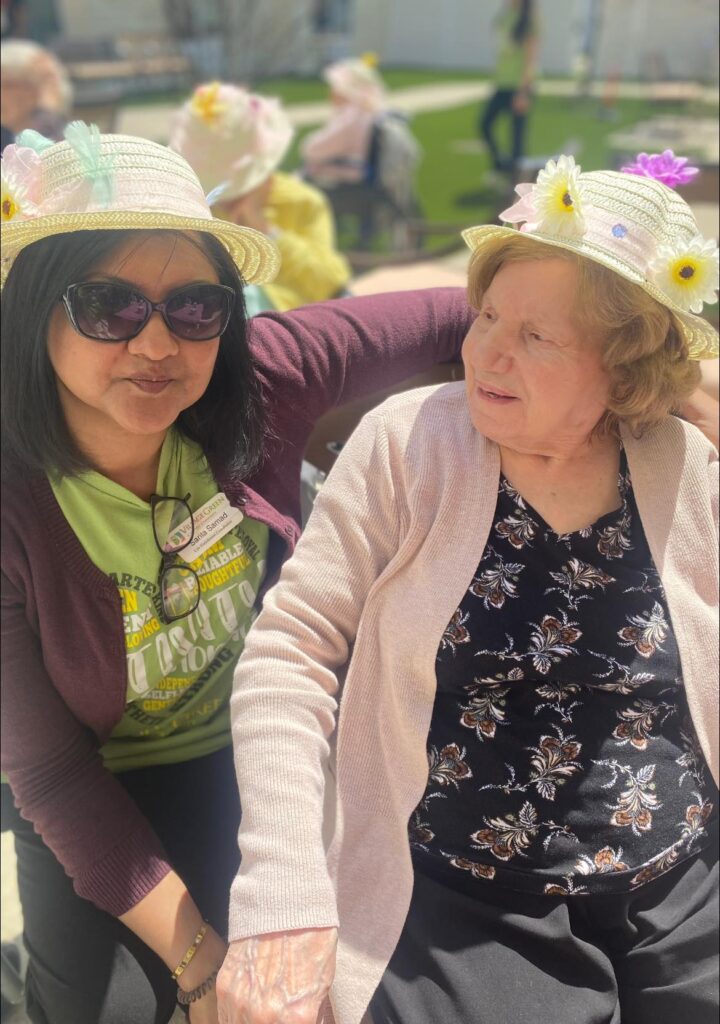
When a person with dementia refuses care, their behavior is likely a result of other emotions or cognitive challenges they may be experiencing.
Part of the reason a person with dementia may refuse care is because they may still be pushing back against the fact that they may need extra help. Denial is common among individuals who don’t yet understand the full extent of their condition.
The truth is that fear and anxiety are also significant factors: unfortunately, living in care homes is still often associated with being “sick,” which is far from the truth. As a result, a person with dementia may reject needing help.
Also, given that the person’s brain is changing, understanding why certain tasks are challenging can be tough for a person with dementia to accept.
In sum, a person’s changing cognitions — and the willingness to accept that their brain (and therefore cognition) is changing — can influence why a person with dementia may refuse care.
The good news is that recognizing the fact that their brain is changing, and that a person with dementia may be struggling with accepting those changes, is the first step to helping a dementia patient receive the right care for them.
By approaching each person’s situation with compassion, curiosity, and understanding, we can address their feelings and provide quality care for their needs.
Action items: when a person with dementia refuses care
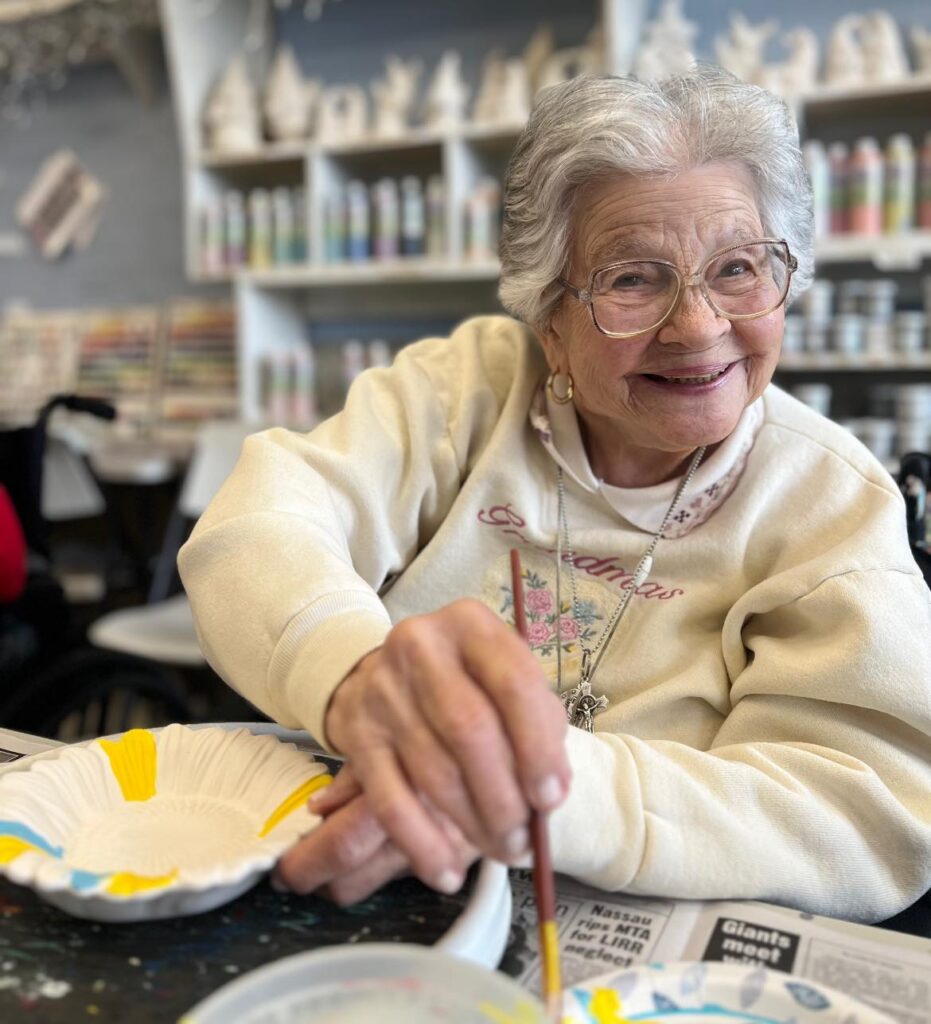
“So, what actions should I take if my loved one with dementia refuses care?” you might wonder.
Before determining next steps to help a person refusing dementia, you’ll want to remember to keep in mind two important axioms:
- Be thoughtful
- Be compassionate
Be deliberate, kind, open, and calm when communicating with a person with dementia. If you’re trying to approach talking to someone with memory loss about the idea of receiving extra residential care, start by introducing the topic of care and focusing on specific situations rather than the broader diagnosis of dementia.
For example, instead of saying something like, “You need extra care at home or in a community setting because of your disease” consider addressing recent difficulties with daily tasks instead of the diagnosis itself.
For instance, you might phrase your concern with compassion and kindness, such as, “I noticed you needed some extra help with managing your appointments this week. I care about you, and I want to help.”
In the example above, you want to leave space and time to hear what the person’s concerns are, acknowledge them, and validate their feelings throughout the process. Alas, denial often stems from fear, confusion, or anxiety, so being a source of reassurance and support may help allay any nerves the person may have.
What’s more, offering specific examples of situations where care can be helpful may also make the need for help more understandable for the person with dementia. At the same time, you’ll want to avoid pressuring the person into accepting care.
Pressuring a person can make them fight and push back against receiving care, thereby eroding trust and safety between the two of you.
By being thoughtful and compassionate, you can encourage more open dialogue. When open dialogue is developed, you can increase the likelihood that your loved one will accept that they need extra care for their well-being.
Consider enlisting professional help to support your loved one
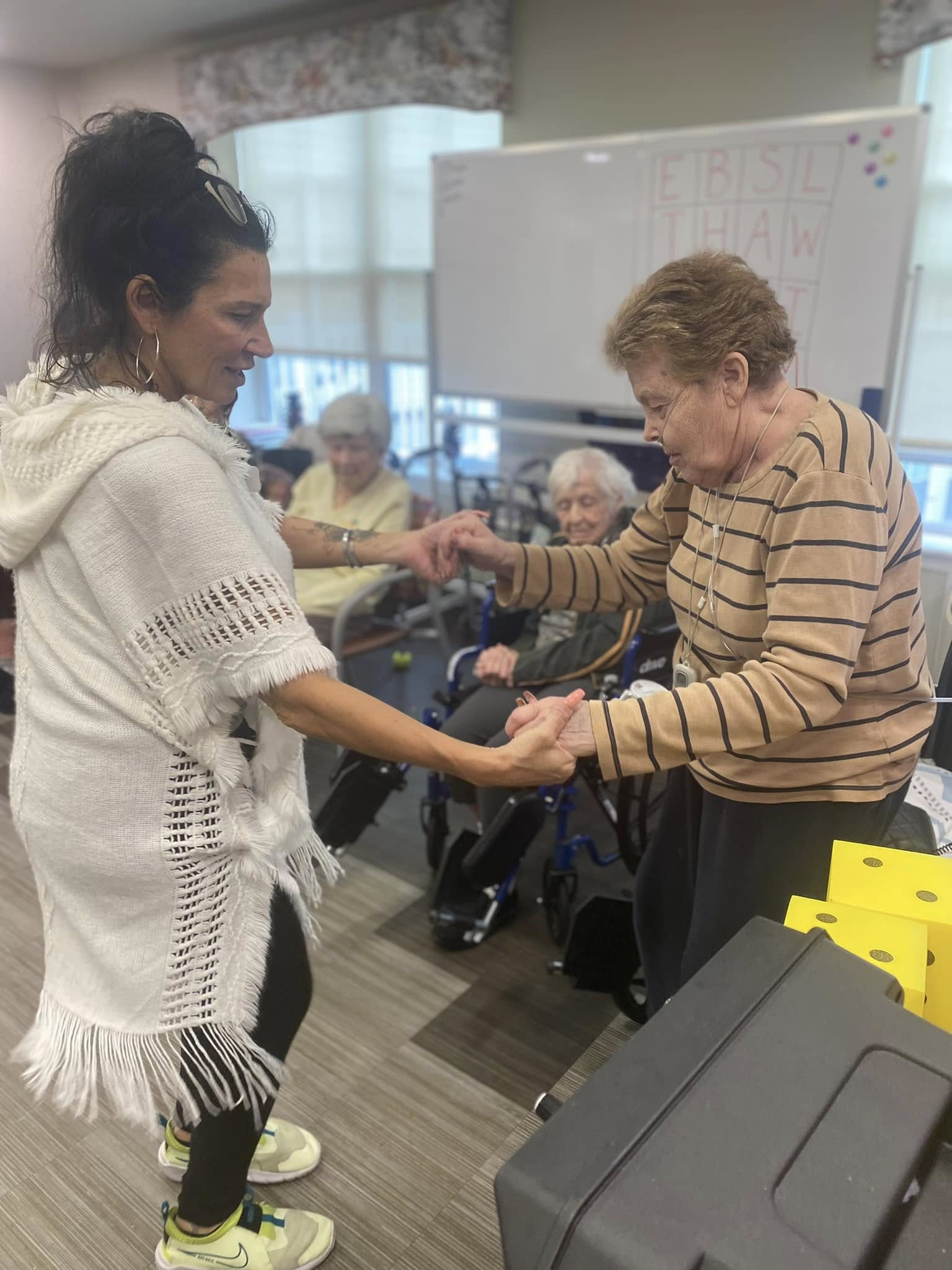
Now, let’s say that your loved one still isn’t hearing you out despite being thoughtful, compassionate, and kind. If your loved one is refusing care even after you’ve been kind, deliberate, and intentional with your communication, professional guidance may be necessary.
Consulting with a healthcare provider who specializes in working with individuals with dementia may provide valuable insights and strategies for managing the situation. A trained professional can help assess the patient’s cognitive status and determine whether any medical conditions are influencing the person’s refusal of care.
What’s more, many organizations provide seminars on Alzheimer’s disease, dementia care, and geriatric care for individuals refusing help for their condition. For example, at Village Green, we partner with local universities and teach courses about how to care for those with memory loss and who need assisted living.
By enrolling in a continuing education program, you’ll gain a better understanding of dementia care and the challenges of caring for someone who may be in denial about or resisting extra home or inpatient care.
With family, friends, and caregivers, develop a plan
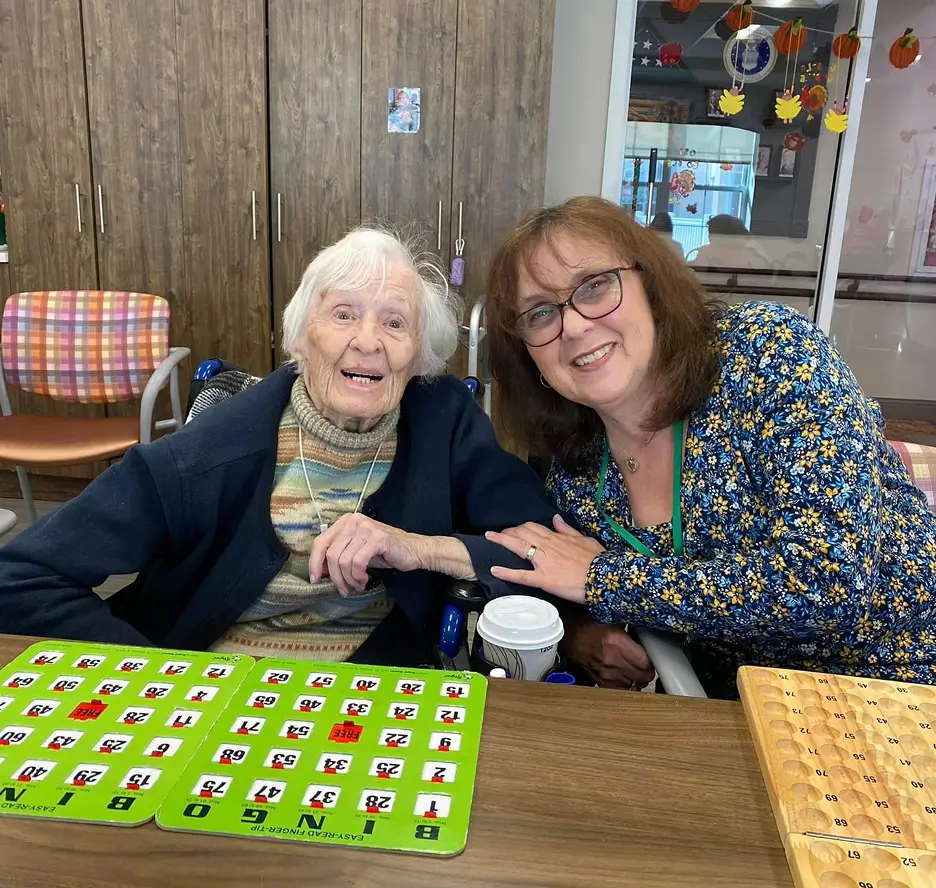
Creating a care plan that prioritizes the individual’s preferences and needs is one of the first steps toward supporting a person who refuses care.
Involving the person with dementia in the planning process can also help them feel more in control and can reduce their resistance to receiving care. Consider discussing their routines, preferences, and concerns about receiving help.
What’s more, the care plan should also provide some flexibility. For example, if a person’s health condition changes over time, you’ll want to bake in some wiggle room in your plan to accommodate a person as their condition evolves over time.
As such, reviewing and updating the plan on the regular can guarantee that the plan continues to meet the person’s needs and keep them comfortable.
All individuals in the person with dementia’s life should be a part of this process to ensure well-rounded care that touches on all crucial aspects of the person’s life.
On the topic of support: family members and caregivers
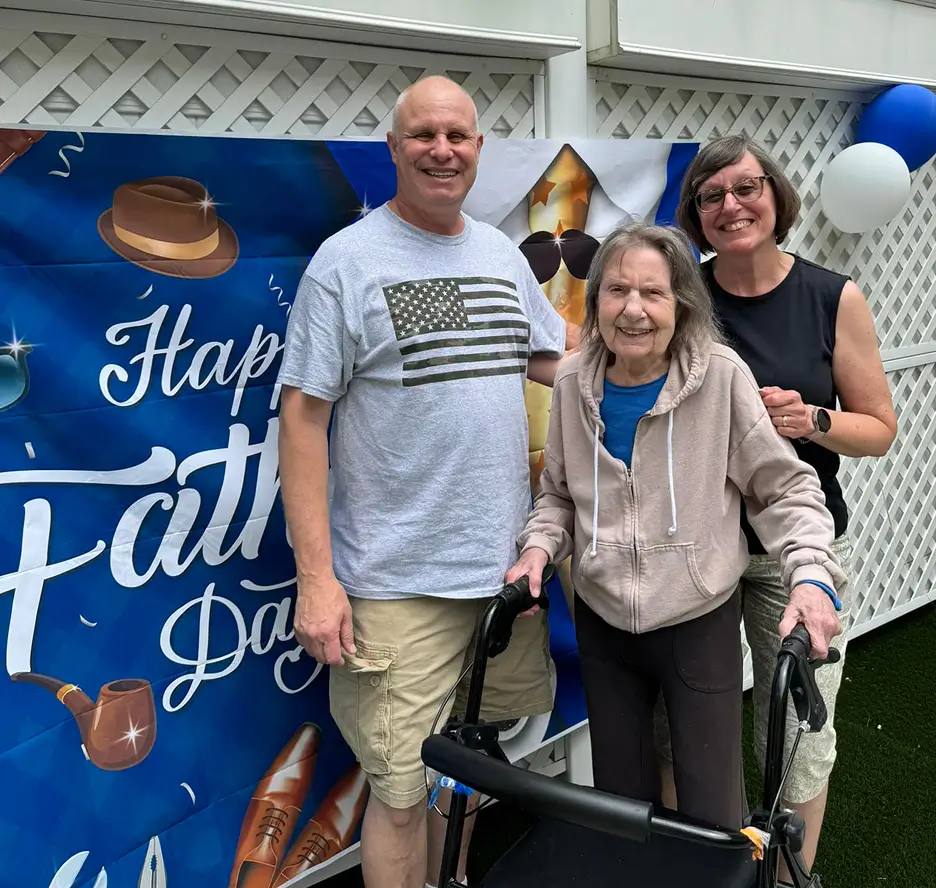
Caring for someone with dementia can take an emotional and physical toll on a person. Especially if the person is refusing care, knowing what to do and who to turn to can be tough.
For family members and primary caregivers, the importance of respite care can’t be overstated. Caregivers: make sure to prioritize your health as well.
Joining a support group, consulting with a counselor who specializes in dementia care, or asking or help is just as, if not more important as caring for the person entrusted to your care.
Other ways family members can encourage someone with dementia to thrive is by participating in the care process and involving themselves by providing emotional support to the person with dementia.
By working together as a team, caregivers and family members can distribute caregiving responsibilities and ensure everyone is delivering consistent care.
Also, by understanding the reasons behind a refusal, approaching the situation with empathy and professional guidance can help you create a supportive environment that encourages the older person to accept receiving care with greater ease.
Did you know?
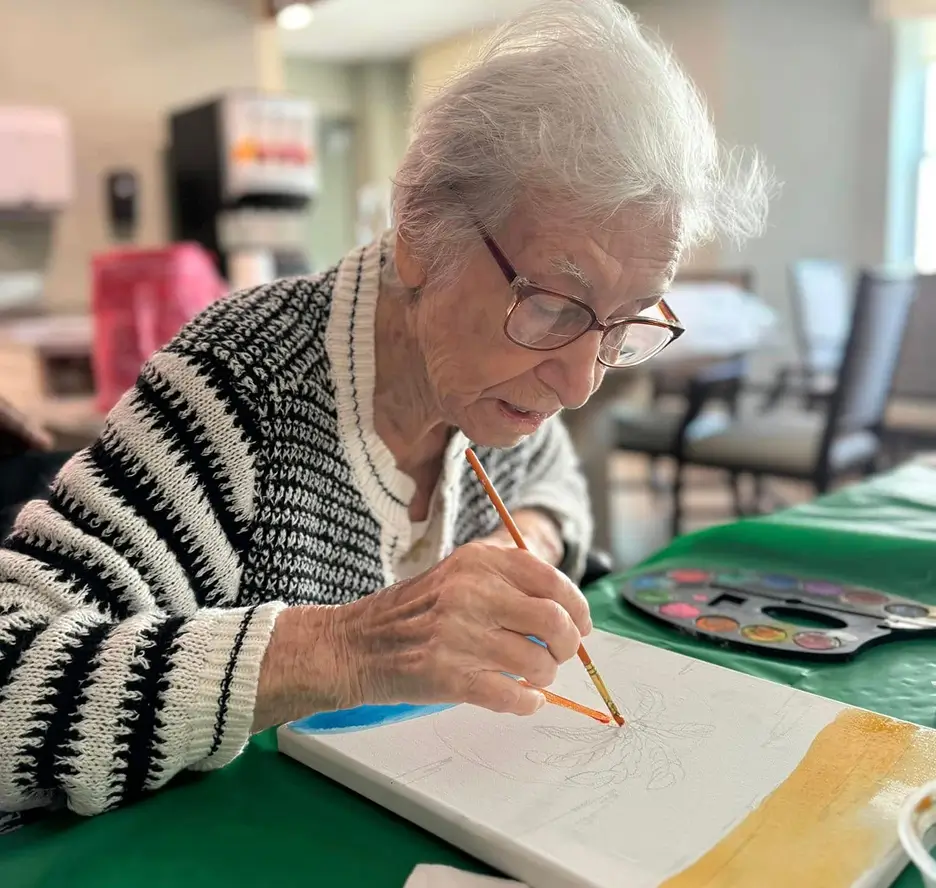
Did you know that memory issues creep up slowly? Seniors can go years without noticing any significant difference in their memory by relying solely on the help of family or friends.
To read more information about memory care and how to know when you or a loved one may need further support, check out our featured article on understanding the seven stages of dementia. Alternatively, you can visit our Facebook page to see how we care for seniors with memory challenges in real-time.
Final thoughts: when a dementia patient refuses care

If you’re supporting a person with dementia who refuses to go to care, consider the following tips for a successful dialogue with them:
- Address the topic with kindness and gentleness.
- Listen to their reasons and any fears they raise with kindness and support.
- Break down the memory issue into smaller ones by observing what you notice. (For example, you can say something along the lines of, “I’ve noticed you misplaced your medication this morning again.”)
- Avoid arguments and try to divert the conversation if needed, but do reassure the person that they are safe, regardless of how they feel about the conversation.
- Keep a diary or journal that documents your loved one’s incidents. Doing so will help support your assertions to your loved one — or if needed, to your loved one’s doctor team if the doctor team requests to see evidence of your claims.
Finally, consider reaching out to a senior care facility or assisted living community for help. At Village Green, we’re dedicated to empowering caregivers through compassionate and kind caregiving solutions.
Our caregivers and senior care specialists have decades of experience providing memory care solutions for seniors and older adults with a variety of different medical and memory conditions.
If you ever need an expert’s take on the issue, we’re just a phone call away. Don’t hesitate to reach out to us at (516) 271-2500 or villagegreenlife@villagegreenseniorliving.com.
Until then, we wish you a joyful journey ahead!
Welcome to Village Green: Levittown, NY’S Finest Memory Care Community

